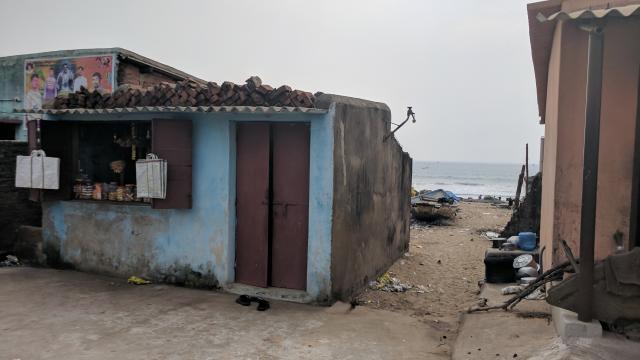Why We Invested: Mapping Slums in Odisha, India with Tata Trusts

In India, having “patta” is critical to accessing social and financial opportunity. Patta, or property titles, may sometimes be the only way to show the proof of address that’s needed to open a bank account, enroll children in school, and access government benefits. Without it, many are invisible to the system.
The patta to their house allows people living in slums to invest in home improvements, be it constructing a toilet or covering their mud floor with tiles. They can access loans and start small businesses. There is also an incredible ripple effect even beyond a given household – communities where people have patta see less poverty, increased school attendance, greater equality for women, and better land and resource conservation. However, securing patta has been historically difficult for slum dwellers in India. These slums have developed over decades on land that is often owned by government authorities. Government authorities face the difficult choice between removing “encroachments” or extending welfare benefits to economically disadvantaged families.
The need for patta is particularly pertinent in Odisha, the state with the second highest number of slum households in India and where the majority of the land on which slums exist is under the ownership of governments and Urban Local Bodies. Odisha’s coastline is dotted with settlements like Nolia Sahi, where residential populations are living without patta.
But today, Odisha is working to make it easier for residents in its informal settlements to secure patta. In August 2017 the state enacted the Odisha Land Rights to Slum Dwellers Act, which aims to identify, map, and issue titles for parcels of land currently occupied by 200,000 slum households. In May 2018, Odisha delivered the first installment of property titles to 2,000 families across Nolia Sahi and other slums in Puri and Ganjam districts. Not only was this a milestone for Odisha, but this pioneering legislation is an invaluable example of why political will and effective public institutions are a critical force for strengthening property rights.
At Omidyar Network, we’re committed to helping for-profit companies and nonprofit organizations across the world empower governments like Odisha to adopt innovative approaches to administering property titles to their constituents. That’s why we’re proud to announce our partnership with Tata Trusts to map Odisha’s informal settlements and identify 100,0000 households eligible to benefit from the Slum Dwellers Act.
To identify an applicable mapping methodology with Tata Trusts in Odisha, we leveraged our expertise founded on ongoing research efforts in machine learning and spatial technology.We also applied learnings from our work to explore land parcel mapping with The Asia Foundation, which lead to the adoption of drones for land surveying in the Philippines.
We champion mapping technologies, specifically drones, as the cost-effective surveying solution to scale the delivery of rights to households. Our experience in the Philippines, as well as the pilot project in Odisha, showed that drones can capture detailed, accurate, high-resolution images for mapping in less than a week, compared to the months and resources expended on mapping boundaries through manual surveys.
In addition to these productivity gains, we’ve found that this drone-based methodology has been a powerful epicenter for community involvement in mapping households. Drone imagery visualizes marked boundaries of residences accurately, leading to lowered chances of exclusion errors. Additionally, a view from the sky fosters a more holistic understanding of the use of communal space in slums. It also fosters engagement withcommunity members, who help identify the eligible households through their local networks of knowledge.
This innovative combination of technology and grassroots engagement has helped uncover 2,000 households that have long been “invisible” to Odisha today, and we’re just getting started. While we’re thrilled to uncover 100,000 more households in the next phase of the Slum Dwellers Act implementation in 2018, we’re ultimately hoping that the success of this partnership will incite action and drive new, effective solutions to strengthening property rights for the millions of slum dwellers around the world.



.jpg)







